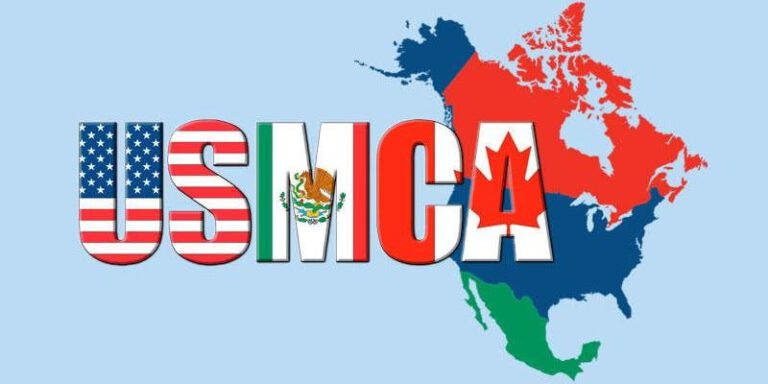Unfulfilled USMCA promise: China’s influence grows as manufacturers choose Mexico over the U.S.
By Richard Mann
By Richard Mann
RIO TIMES
July 3, 2023
Three years after the implementation of the United States-Mexico-Canada Agreement (USMCA), tensions with China have brought the trade bloc into focus.
The original goal of attracting manufacturers to the U.S. has not been fully achieved.
Despite stricter requirements for tariff-free trade, many companies are still choosing to produce in Mexico due to lower labor costs, even if they have to pay duties under the new trade deal.
Trade data shows that amid the U.S.-China tariff disputes, companies producing goods affected by higher levies have increased shipments from Mexico instead of manufacturing them in the U.S.
 Unfulfilled USMCA promise. (Photo Internet reproduction)
Unfulfilled USMCA promise. (Photo Internet reproduction)
Chinese manufacturers are investing in Mexico as an export base to the U.S. to bypass increased costs resulting from the trade war.
Chinese investment in Mexico reached $2.52 billion in 2022, a 50% increase from the previous year.
The current U.S. administration led by President Joe Biden aims to attract investment to North America as a whole and establish a more secure supply chain.
The administration supports “friendshoring” by shifting supply chains to trusted trade partners.
Combined U.S. imports from Mexico and Canada have grown by 32% between 2019 and 2022, surpassing the increase in imports from China.
The U.S. encourages investments in Mexico and Canada for the electric vehicle supply chain.
The Biden administration plans to subsidize EV purchases limited to models assembled within the region.
Challenges exist, including concerns from Japan and Europe regarding U.S. EV tariffs and the potential exclusion of other trade partners, which could escalate tensions.
While the USMCA has influenced trade dynamics between China and Mexico, many companies still choose Mexico over the U.S. due to lower labor costs.
Chinese manufacturers are investing in Mexico to avoid trade war costs.
The Biden administration aims to build a secure supply chain within North America but faces challenges and potential trade tensions with other partners.
July 3, 2023
Three years after the implementation of the United States-Mexico-Canada Agreement (USMCA), tensions with China have brought the trade bloc into focus.
The original goal of attracting manufacturers to the U.S. has not been fully achieved.
Despite stricter requirements for tariff-free trade, many companies are still choosing to produce in Mexico due to lower labor costs, even if they have to pay duties under the new trade deal.
Trade data shows that amid the U.S.-China tariff disputes, companies producing goods affected by higher levies have increased shipments from Mexico instead of manufacturing them in the U.S.
 Unfulfilled USMCA promise. (Photo Internet reproduction)
Unfulfilled USMCA promise. (Photo Internet reproduction)Chinese manufacturers are investing in Mexico as an export base to the U.S. to bypass increased costs resulting from the trade war.
Chinese investment in Mexico reached $2.52 billion in 2022, a 50% increase from the previous year.
The current U.S. administration led by President Joe Biden aims to attract investment to North America as a whole and establish a more secure supply chain.
The administration supports “friendshoring” by shifting supply chains to trusted trade partners.
Combined U.S. imports from Mexico and Canada have grown by 32% between 2019 and 2022, surpassing the increase in imports from China.
The U.S. encourages investments in Mexico and Canada for the electric vehicle supply chain.
The Biden administration plans to subsidize EV purchases limited to models assembled within the region.
Challenges exist, including concerns from Japan and Europe regarding U.S. EV tariffs and the potential exclusion of other trade partners, which could escalate tensions.
While the USMCA has influenced trade dynamics between China and Mexico, many companies still choose Mexico over the U.S. due to lower labor costs.
Chinese manufacturers are investing in Mexico to avoid trade war costs.
The Biden administration aims to build a secure supply chain within North America but faces challenges and potential trade tensions with other partners.
No comments:
Post a Comment